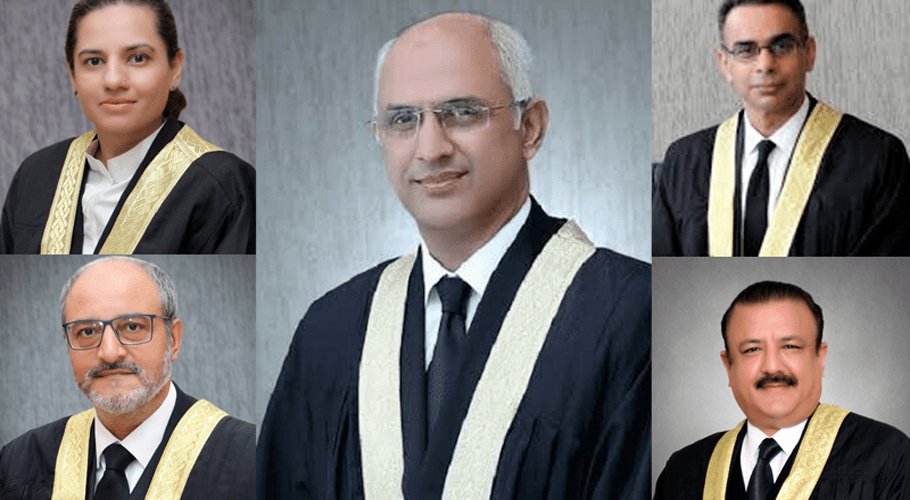Five judges of the Islamabad High Court (IHC) — Justices Mohsin Akhtar Kayani, Babar Sattar, Tariq Mahmood Jahangiri, Saman Rafat Imtiaz, and Sardar Ejaz Ishaq Khan — on Friday filed separate petitions in the Supreme Court under Article 184(3) of the Constitution. The petitions challenge the use of administrative powers within the IHC, particularly regarding the constitution of benches, transfer of cases, and preparation of rosters.
The petitions, naming the IHC, its Chief Justice Sardar Muhammad Sarfraz Dogar, and the Federation of Pakistan as respondents, contend that administrative authority cannot be used to undermine judicial functions. The judges argue that once a bench is assigned a case, the chief justice cannot reconstitute benches, exclude judges from rosters, or reassign cases at will. They further assert that such powers must be exercised in line with Articles 192 and 202 of the Constitution, through rules approved collectively by the high court.
The petitioners asked the Supreme Court to declare the “Master of the Roster” doctrine void, invalidate recent IHC administrative committee notifications, and strike down the 2025 IHC Practice and Procedure Rules adopted without full court approval. They also sought a ruling that high court judges can only be restrained under Article 209 through the Supreme Judicial Council, and not through internal administrative measures.
This move reflects ongoing rifts within the IHC, which began with the appointment and transfer of Chief Justice Dogar earlier this year and have since deepened amid disputes over seniority, case transfers, and judicial oversight. The petitions highlight a struggle over judicial independence and the limits of administrative authority within Pakistan’s judiciary.
















